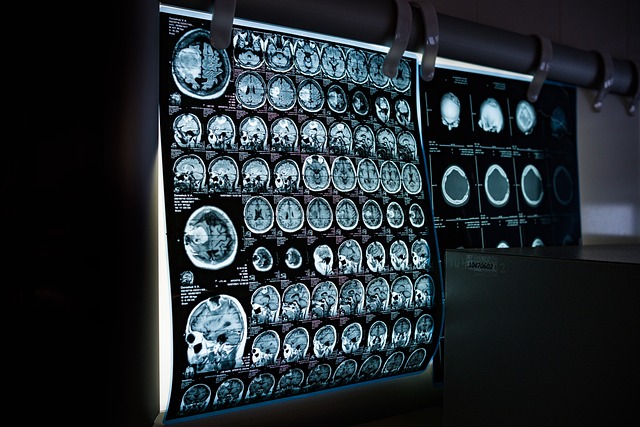First Signs of Liver Trouble — You Should Never Ignore
The liver performs vital functions, and when something goes wrong, the body often sends subtle warning signals. Early signs of liver trouble may include fatigue, abdominal discomfort, or skin changes. Recognizing these symptoms early may help prevent serious liver conditions from progressing.

Early Symptoms of Liver Problems
The liver is remarkably resilient, often showing minimal symptoms until damage becomes significant. However, these early warning signs should never be ignored:
-
Persistent fatigue and weakness that cannot be explained by other factors
-
Unexplained weight loss or loss of appetite
-
Nausea or vomiting, especially after fatty meals
-
Yellowing of the skin or whites of the eyes (jaundice)
-
Pain or discomfort in the upper right abdomen
-
Dark urine color not related to hydration levels
-
Pale or clay-colored stools
-
Itchy skin without a visible rash or reason
These symptoms may appear gradually and can be easily attributed to other conditions, making liver problems particularly dangerous when overlooked.
How to Spot Liver Trouble Signs
Identifying liver issues requires vigilance about changes in your body. Watch for these indicators:
-
Swelling in the legs, ankles, or abdomen (ascites)
-
Easy bruising or bleeding
-
Changes in mental state, confusion, or difficulty concentrating
-
Spider-like blood vessels visible on the skin (spider angiomas)
-
Redness on the palms of hands (palmar erythema)
-
Enlarged breasts in men (gynecomastia)
-
Changes in stool or urine color
-
Chronic bad breath or unusual body odor
These signs often develop gradually, making them easy to dismiss or attribute to aging or other conditions. Recording when symptoms occur and their severity can help your healthcare provider make an accurate diagnosis.
Liver Warning Signs You Should Know
Certain symptoms require immediate attention as they may indicate advanced liver disease:
-
Severe abdominal pain and swelling
-
Jaundice (yellowing of skin and eyes)
-
Extreme fatigue that interferes with daily activities
-
Confusion, disorientation, or personality changes
-
Vomiting blood
-
Black, tarry stools
-
Fever with yellowing skin
-
Extreme itchiness that doesn’t respond to treatments
These symptoms may indicate conditions like cirrhosis, hepatitis, fatty liver disease, or even liver cancer. Left untreated, these conditions can lead to liver failure, which is potentially life-threatening.
Fatigue and Liver Dysfunction Links
Persistent fatigue is often the first and most common symptom of liver disease, yet it’s frequently overlooked. Here’s why liver problems cause fatigue:
When the liver functions improperly, it struggles to remove toxins from the bloodstream and process nutrients effectively. This leads to a buildup of harmful substances that can cause brain fog and extreme tiredness. Additionally, liver dysfunction often disrupts sleep patterns and appetite, further contributing to energy depletion.
Fatigue related to liver issues typically doesn’t improve with rest and may worsen after physical activity or eating. If you experience unexplained exhaustion lasting more than two weeks, especially when accompanied by other symptoms on this list, consult your doctor for liver function tests.
When to Talk to a Doctor About Liver Health
Don’t delay seeking medical attention if you recognize potential liver trouble signs. Schedule an appointment with your healthcare provider if:
-
You experience any persistent symptoms mentioned above for more than two weeks
-
You have a family history of liver disease or liver cancer
-
You have risk factors such as heavy alcohol use, obesity, diabetes, or hepatitis exposure
-
You take medications known to affect liver function
-
You’ve been exposed to certain chemicals or toxins
-
You notice jaundice, severe abdominal pain, or mental confusion
Early detection dramatically improves outcomes for most liver conditions. Your doctor may recommend blood tests to check liver enzymes, imaging studies like ultrasound or CT scans, or in some cases, a liver biopsy to determine the cause and extent of any liver damage.
Prevention and Liver Health Maintenance
While some liver conditions stem from genetic factors or unavoidable exposures, many liver problems can be prevented with healthy lifestyle choices:
-
Limit alcohol consumption or avoid it completely
-
Maintain a healthy weight through balanced nutrition
-
Exercise regularly
-
Avoid unnecessary medications, especially acetaminophen in excess
-
Get vaccinated against hepatitis A and B
-
Practice safe sex and don’t share needles
-
Avoid exposure to toxins and chemicals without proper protection
-
Manage chronic conditions like diabetes and high cholesterol
Regular check-ups that include liver function tests are particularly important for those with known risk factors or family history of liver disease.
Remember that liver damage can often be reversed if caught early enough. The liver has remarkable regenerative abilities, but this capacity diminishes as disease progresses. Being proactive about recognizing symptoms and seeking timely medical intervention provides the best chance for maintaining liver health throughout your lifetime.
This article is for informational purposes only and should not be considered medical advice. Please consult a qualified healthcare professional for personalized guidance and treatment.




